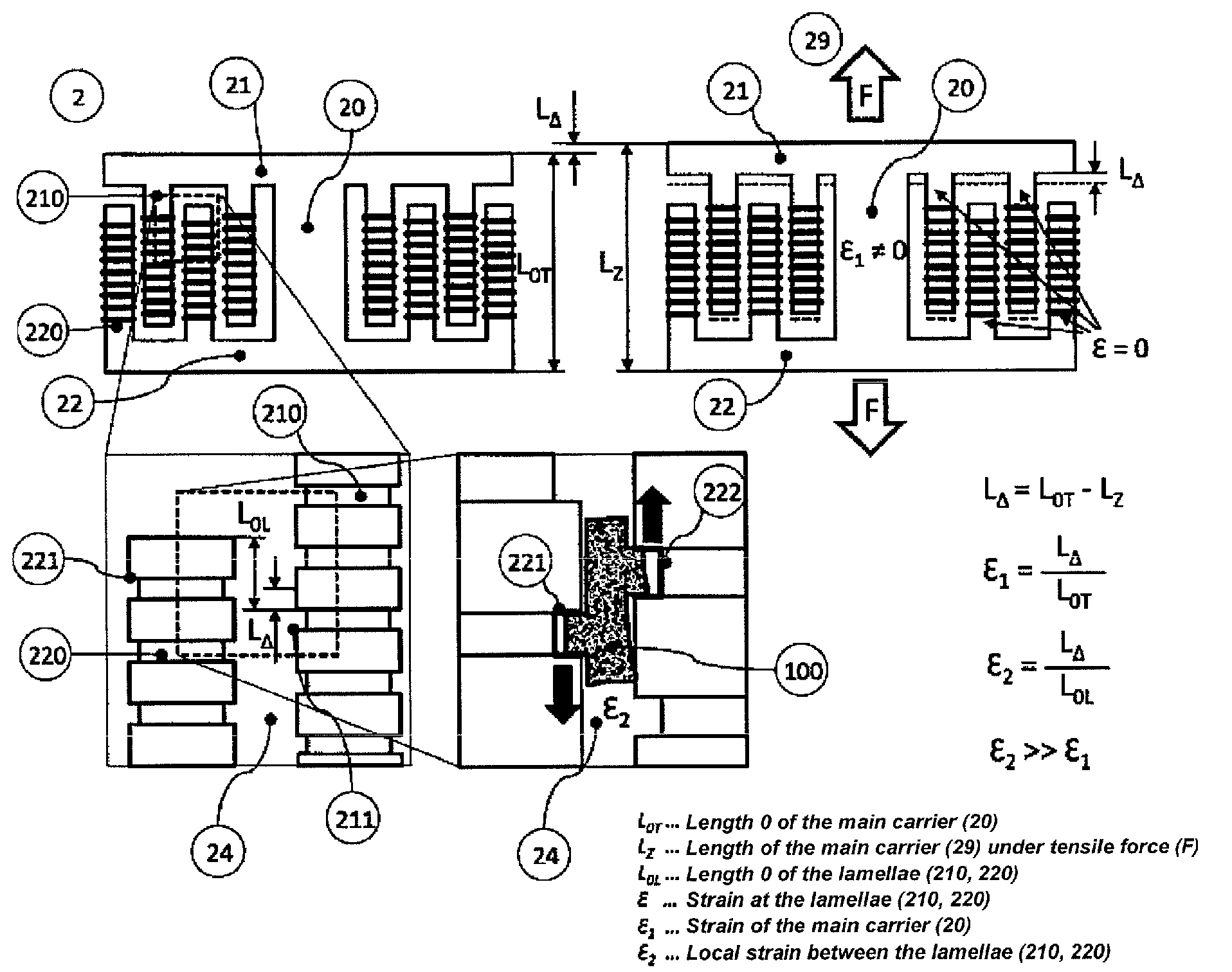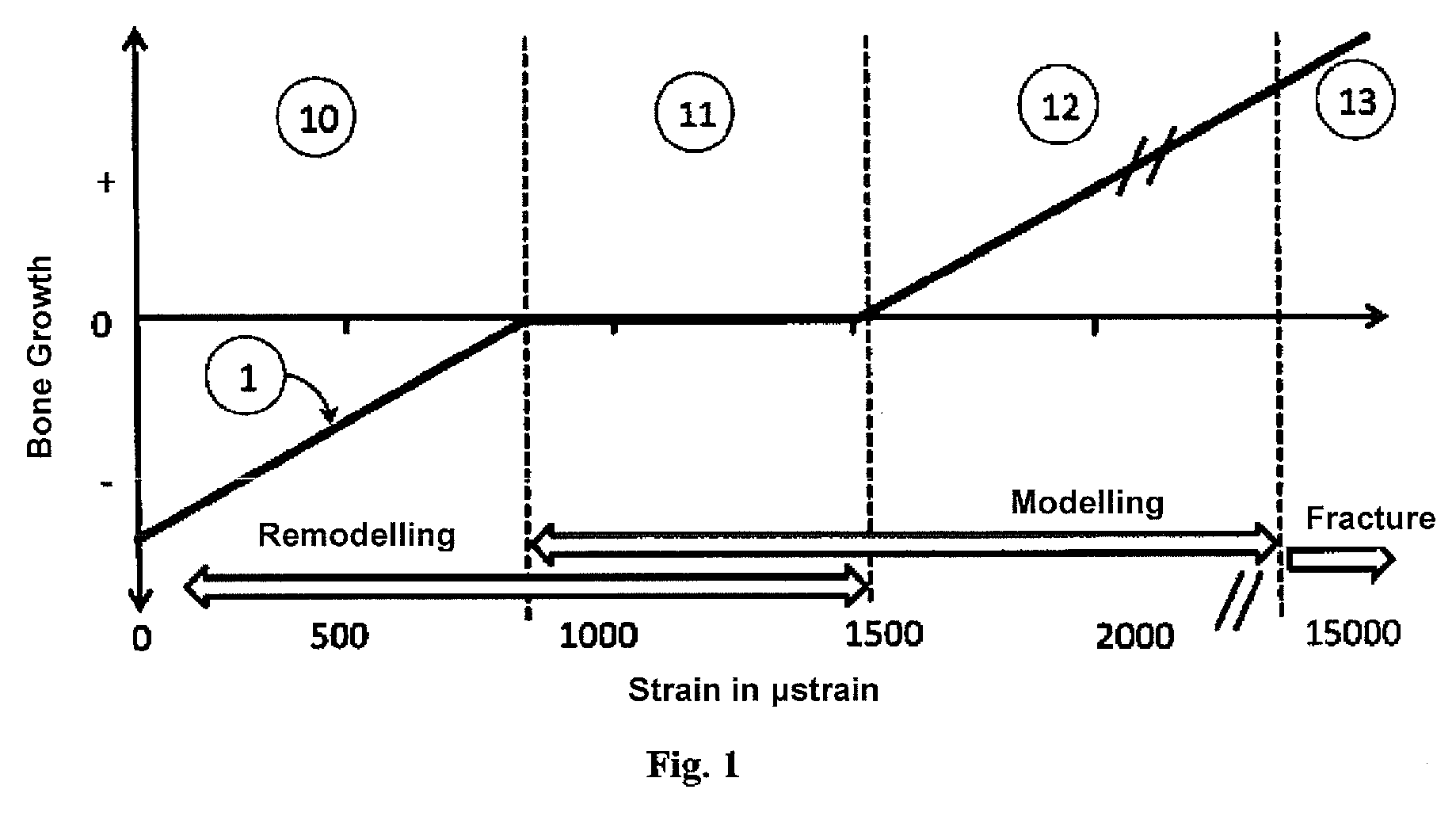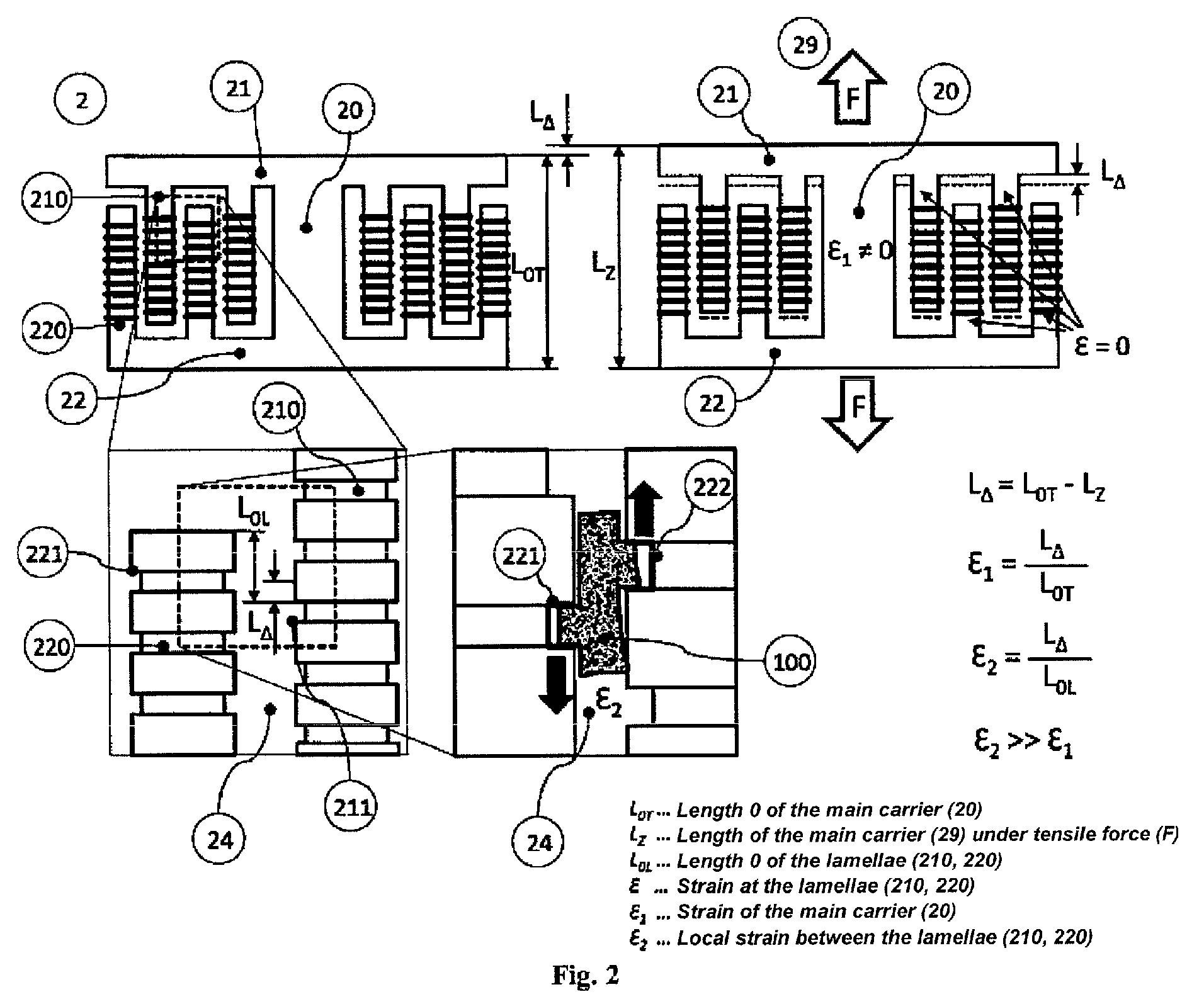Bone-anchoring or bone-connecting device that induces a strain stimulus
a bone-anchoring or bone-connecting technology, applied in the field of implants in the form of implants, can solve the problems of screw loosening, bone necrosis, and loss of structural integrity, and achieve the effects of reducing implant loosening, increasing anchoring strength with the bone, and reducing the loosening of implants
- Summary
- Abstract
- Description
- Claims
- Application Information
AI Technical Summary
Benefits of technology
Problems solved by technology
Method used
Image
Examples
Embodiment Construction
[0013]The object of the present invention is to provide an implant that can be connected to the bone in order to transmit loads and through a relative movement of suitable structures connected to the implant exerts a physiological strain stimulus on the tissue, with the aim of improving and / or accelerating the bone healing.
Technical Solution
[0014]This object is achieved in that lamella-like surface elements or structures (hereinafter also termed structure carriers) are arranged on the surface of an implant carrier. The structure carriers are largely decoupled from the implant carrier, but are connected at least at one point to the implant carrier, in particular in the region of the interfaces for the joining to the existing bone. In a preferred embodiment a plurality of structure carriers are in each case joined alternately to opposite sides of the interfaces of the implant carrier. The structure carriers can also contain depressions or openings (pores), in which the...
PUM
| Property | Measurement | Unit |
|---|---|---|
| structure size | aaaaa | aaaaa |
| structure size | aaaaa | aaaaa |
| force | aaaaa | aaaaa |
Abstract
Description
Claims
Application Information
 Login to View More
Login to View More - R&D
- Intellectual Property
- Life Sciences
- Materials
- Tech Scout
- Unparalleled Data Quality
- Higher Quality Content
- 60% Fewer Hallucinations
Browse by: Latest US Patents, China's latest patents, Technical Efficacy Thesaurus, Application Domain, Technology Topic, Popular Technical Reports.
© 2025 PatSnap. All rights reserved.Legal|Privacy policy|Modern Slavery Act Transparency Statement|Sitemap|About US| Contact US: help@patsnap.com



